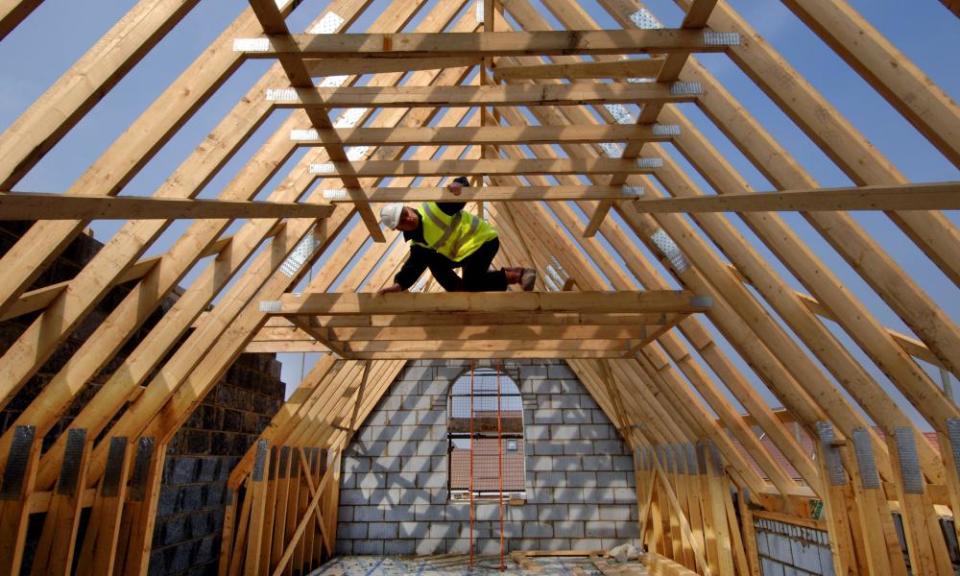Housebuilder Persimmon's profits fall as Covid takes toll

The housebuilder Persimmon has reported a lower annual profit because of the coronavirus pandemic, and said it was doubling its team of inspectors as it deals with the fallout from a public row over the quality of its homes.
The company reported a pre-tax profit of £783.8m last year, down from £1.04bn the year before, when it became the only housebuilder to have made more than £1bn two years in a row. It said the Covid-19 pandemic cost it £17.1m, as building sites shut down for several weeks during the first national lockdown last spring.
The number of homes completed fell by 14% to 13,575 in 2020 and Persimmon does not expect completions to return to 2019 levels until next year. However, the impact was mitigated by a near 7% rise in its average selling price to £230,534, while a private home now costs £250,897. Despite the pandemic, Persimmon has amassed cash of £1.2bn compared with £844m in 2019.
The new year has started well, Persimmon said, with forward sales of £2.3bn, up 15% on last year.
The housing market has boomed despite the economic downturn as many people have moved out of cities because of a surge in homeworking, and a stamp duty holiday introduced in July has also fuelled demand. The tax break was extended until 30 June in the budget and the chancellor also announced a new mortgage guarantee scheme aimed at first-time buyers who can only afford a 5% deposit. Persimmon’s share price rose almost 5%.
Persimmon is increasing its team of build quality inspectors to more than 60 by the end of this year and said it would have the biggest such team in the industry.
Its new chief executive, Dean Finch, said the team would report directly to the group construction director. Those inspectors “will assess every single plot we build at a number of key stages and only allow work to continue if our higher standards have been met”, he added.
Finch, a former National Express boss, took over last year after Dave Jenkinson was ousted after the scandal over poorly built homes, only 15 months after he took the helm following a backlash against his predecessor Jeff Fairburn’s £75m bonus.
Persimmon has overhauled its building process after a deluge of customer complaints and a damning independent review, which said the failure to meet minimum building standards was a “manifestation of poor culture” at the firm. The report, which was published in December 2019, also found a “systemic nationwide failure” to install fire-stopping cavity barriers in its timber-frame houses. Persimmon said it had conducted 35,000 inspections so far and fixed problems where necessary.
Persimmon has also set aside £75m to remove flammable cladding at its apartment blocks. It has identified 26 buildings that used now-banned materials. Of those, it still owns five, all of which are less than six storeys high, and will oversee work to ensure fire safety. At the 21 other blocks, the company said it would give financial support to the new owners to make them safe. The rival firm Taylor Wimpey earmarked £125m for fire safety work this week.
Julie Palmer, a partner at the restructuring firm Begbies Traynor, said: “Despite restrictions, Persimmon has performed strongly during the pandemic, benefiting from the government’s help-to-buy scheme and the stamp duty holiday.
“By deciding to delve into its own cash reserves, rather than government aid, Persimmon will be hoping to turn the tide on the lengthy battle to resurrect its reputation after becoming unfortunately synonymous with complaints about poor build and high executive bonuses.”
She added that with the help-to-buy scheme changing from 1 April, when it will be restricted to first-time buyers only and limited by regional price caps, Persimmon would need to “monitor this situation closely”.

 Yahoo Finance
Yahoo Finance 